Decade by Decade: Major Events in Women’s History
Explore some of the most significant achievements made by women in the past century
Candice Lo
/https://tf-cmsv2-smithsonianmag-media.s3.amazonaws.com/filer/womenhistory-631.jpg)
In honor of women's history month, we have chosen one significant event from each decade over the past century. Each event recognizes the achievements of women in all facets of life who moved history forward:
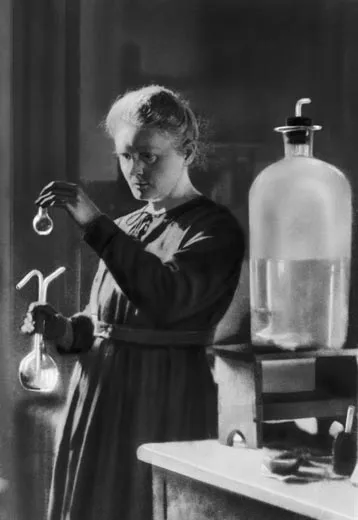
The chemist and physicist is most famous for her pioneering work in the field of radioactivity.
She discovered the chemical element polonium in 1898, which she named after her native country Poland. Together with her husband Pierre, the duo announced the existence of another element—radium. In 1903, they were awarded the Nobel Prize in Physics for their work.
Curie received her second Nobel Prize in 1911, making her the only person to win in two different science fields (physics and chemistry). Her work was crucial in the development of x-rays in surgery. Bettmann/Corbis
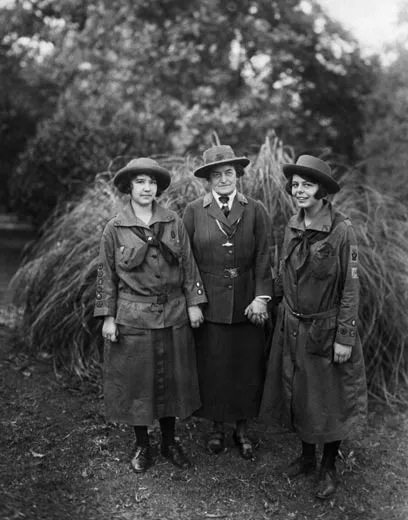
Juliette Gordon Low started the all-girls club in Savannah, Georgia, with the aim of promoting social welfare by encouraging members to participate in community service and outdoor activities.
Among the many famous girl scouts alumni are: Lucille Ball, Hillary Rodham Clinton, Nancy Reagan and Gloria Steinem.
Today the organization has around 3.7 million members. Bettmann/Corbis
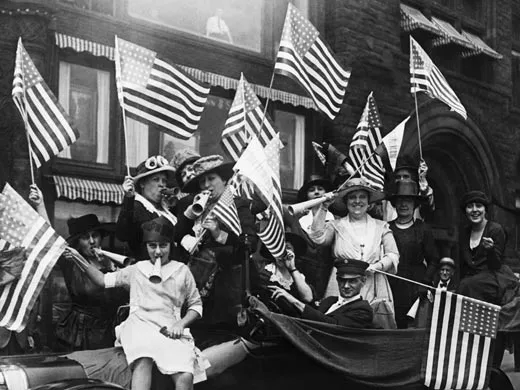
On August 18, 1920, the Nineteenth Amendment of the Constitution was ratified, guaranteeing all American women the right to vote.
It was a major victory for advocates of women's rights, who had been campaigning for women's suffrage for decades. Bettman/Corbis
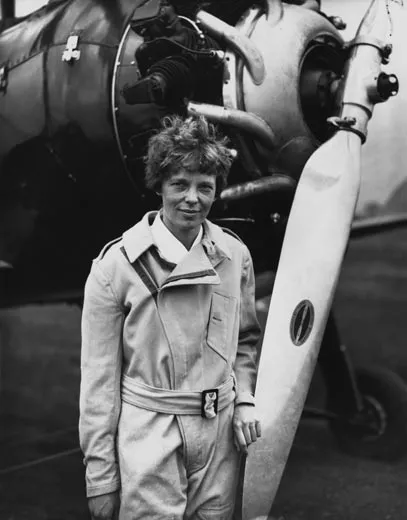
Amelia Earhart set many aviation records and became the first woman to receive the Distinguished Flying Cross. A ten-minute flight in 1920 forged her passion for flying.
After completing her first solo bid across the Atlantic, Earhart's next ambition focused on becoming the first woman to fly around the world. On June 1, 1937 she and a companion set off in a twin-engine Lockheed Electra from Miami and landed in Lae, New Guinea, 28 days later. They departed Lae on July 2 towards Howland Island, 2,556 miles away. They never arrived.
The cause of their disappearance is unknown but many believe that the aircraft ran out of fuel and crashed. Today, Earhart's legacy lives on and she is generally regarded as a feminist icon. Bettman/Corbis
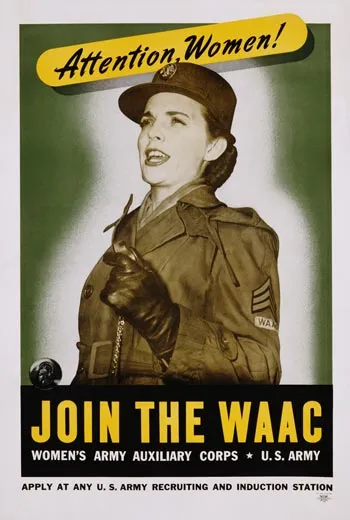
The U.S. Army established the Women's Army Auxiliary Corps (later known as Women's Army Corps, WAC) and recruited around 150,000 women in roles such as radio operators, mechanics and laboratory technicians during World War II.
In 1978, the WAC was disestablished by an act of Congress, as a means to assimilate women more closely into the structure of the Army. Swim Ink 2, LLC/Corbis
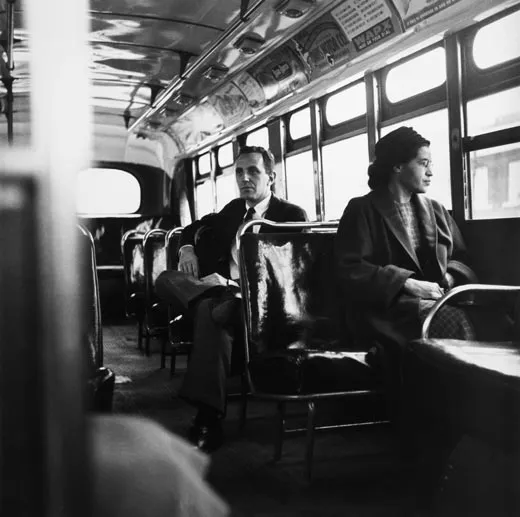
Parks was arrested and charged with violating a city ordinance that segregated passengers by race. This sparked the Montgomery Bus Boycott, which lasted 381 days, until segregation on buses ended.
Park's protests played an important role in raising awareness of African American civil rights. Corbis
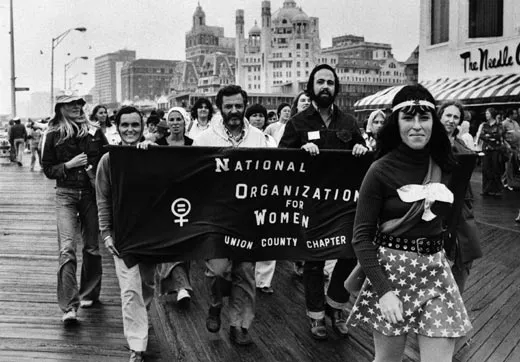
The National Organization for Women was founded in Washington, D.C. by 28 women and men with the aim to "to bring women into full participation in the mainstream of American society."
Today, NOW is the largest and most comprehensive feminist advocacy group in the United States. Bettman Corbis

In 1973, Riggs, a former World No. 1 player, challenged King to a match that promoters dubbed 'Battle of the Sexes'. He vowed that a top female player would not be able to beat him.
Watched by an estimated 50 million people in 37 countries, King beat Riggs in three straight sets. The match brought women's tennis into the limelight.
Today, King continues to champion for women's rights in sports. Bettman/Corbis
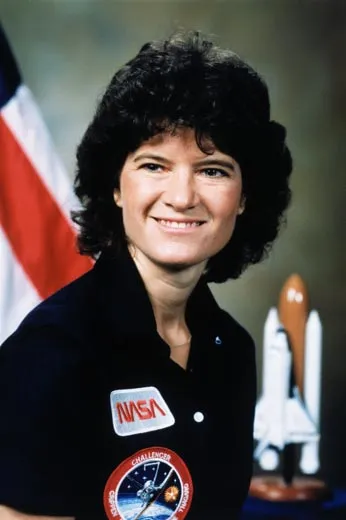
Ride joined NASA in 1978 after answering a newspaper ad seeking applicants for the space program.
In June 1983, she and four other astronauts made the historical six-day flight on the space shuttle Challenger.
To date, around 41 women in the US have flown into orbit. Bettman/Corbis
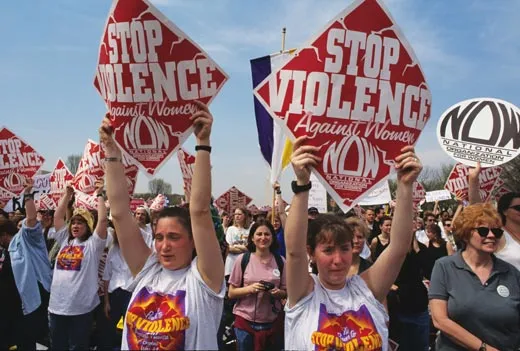
The Violence Against Women Act is a landmark piece of legislation that sought to improve criminal justice and community-based responses to domestic violence, dating violence, sexual assault and stalking in the United States. It was passed with an unprecedented $1.6 billion dollar budget.
In 2005, Congress reauthorized the act and expanded the scope of the bill to include the protection of child victims and immigrants. Mark Peterson/Corbis
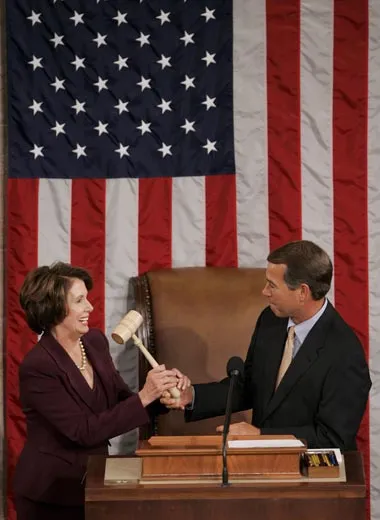
On January 4, 2007, Pelosi was elected by 233 votes to 202 as speaker of the House, making her the highest-ranking woman in the U.S. government. She noted that her election marked "an historic moment for the women of America... Today we have broken the marble ceiling." Shawn Thew/epa/Corbis
Get the latest History stories in your inbox?